Benedict XVI — Controversial Ex-Pope Who Was Accused of Covering Up Church Abuses and Insulting Muslims

On Saturday, December 31, 2022, the Vatican announced the death of former Pope Benedict XVI at the age of 95.
Benedict XVI was the first German to sit on the papal chair, whose resignation surprised the entire world in 2013, leaving behind a Catholic church haunted by scandals of sexual abuse of children by priests and steeped in mismanagement and polarization between conservatives and progressives.
It is noteworthy that on September 11, 2006, Benedict XVI delivered a speech in which he cited an ancient text in which he stated that Islam did not come except with what is evil and inhuman, sparking a wave of protests throughout the Islamic world; as well as he angered the Jews by rehabilitating a Holocaust denier.
Mistakes and missteps peaked in 2012 when leaked papers revealed corruption, intrigue, and disagreements within the Vatican.
Although Benedict XVI repeatedly apologized for the errors of the Church, his efforts failed to halt the rapid decline in church attendance in the West, especially in Europe.
Benedict XVI was also on good terms with his successor, Pope Francis, but his continued presence in the Vatican after he stepped down increased the ideological polarization of the Church, whose followers exceeded one billion and 350 million people.
His Childhood and Education
Benedict XVI—whose name was Joseph Aloysius Ratzinger—was born into a profoundly Catholic family on April 16, 1927, in the town of Marktl, Bavaria, southern Germany, where his father was a policeman.
Ratzinger spent his childhood in the city of Traunstein on the border with Austria, where he received his early Christian religious education.
After the end of World War II, during which he was recruited into Nazi youth organizations, he began studying philosophy and theology at both the Higher School of Philosophy and Religious Sciences in Freising and the University of Munich, and his studies continued for five years, after which he became a priest.
In 1953, he obtained a degree in theology before obtaining a habilitation certificate from the University of Munich.
After completing his graduate studies, Ratzinger began teaching at the Freising School, from which he graduated, as well as teaching at several German universities, such as the University of Bonn, Münster, and Tuebingen.
Since 1969, he has been Professor of Doctrine and History of Doctrines at the University of Regensburg, where he held the position of Vice-Chancellor.
In 1977, Pope Paul VI appointed Ratzinger Archbishop of Munich and Freising.
In 1981, he became president of the Pontifical Bible Commission and the International Theological Commission.
He joined the College of Cardinals in 1993 and then became its president in 2002.
On April 19, 2005, he was elected head of the Catholic Church following the death of Pope John Paul II, and chose for himself the name of Benedict XVI, thus becoming the first German to be elected to the position of Pope since the eleventh century AD.
On February 28, 2013, Benedict XVI announced his resignation for health reasons, making him the first Pope to resign in six hundred years.
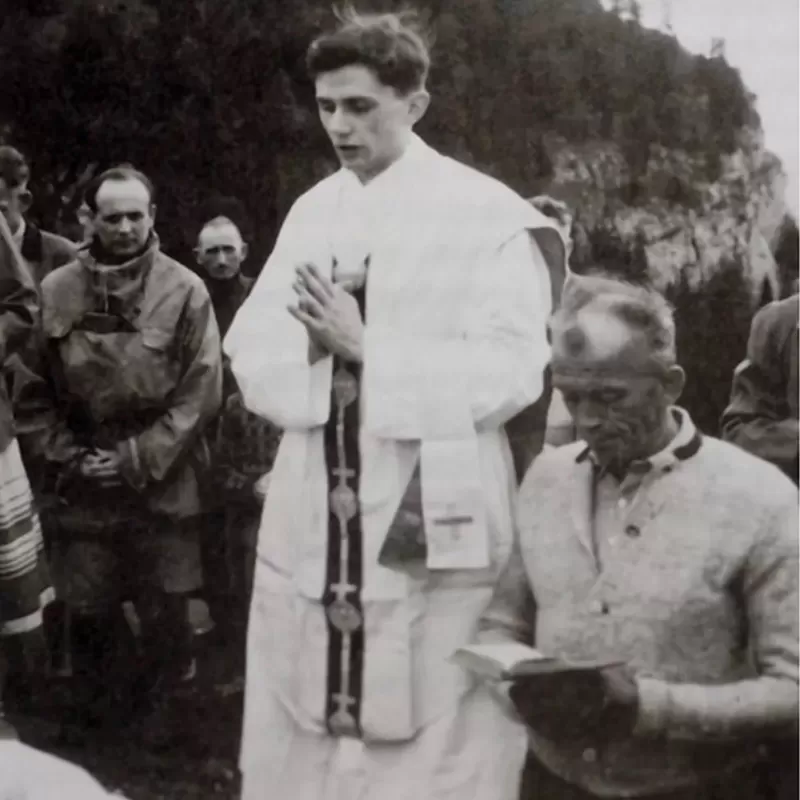
Controversial Papacy
Benedict XVI’s papacy (2005-2013) is considered the most controversial in the modern history of the Vatican, and was accompanied by personal actions and positions that reflected the contradiction between intentions and practices.
During his visit to Germany in 2006, Pope Benedict touched on a very sensitive issue, which is relations with Islam, as the Pope, who made dialogue between religions one of the priorities of his papacy, had never before touched publicly and with such clarity on Islam.
Speaking to university professors and students in Ratisbonne, southern Germany, on the eve of the fifth anniversary of the attacks of September 11, 2001, Pope Benedict condemned Islam in veiled language.
In the lecture, the Pope quoted a 14th-century Byzantine emperor who said, “Islam brought nothing but evil and inhumane things to the world, and it was spread by the sword.”
Benedict XVI’s speech at the time sparked many comments and caused great anger in the Islamic world, revealing that his support for interfaith dialogue was just a slogan.
A few days later, Benedict expressed his deep regret at the Muslims’ reaction to his speech, which he said was misunderstood, knowing that more than 130 Muslim clerics responded to him and entered into arguments with him that almost exploded the relationship between officials of the two religions.
About a month later, the Pope visited Turkiye to try to heal the rift, and his trip included a prayer in the direction of the Kaaba in Sultan Ahmed Mosque in Istanbul (the Blue Mosque), along with the Mufti of the city.
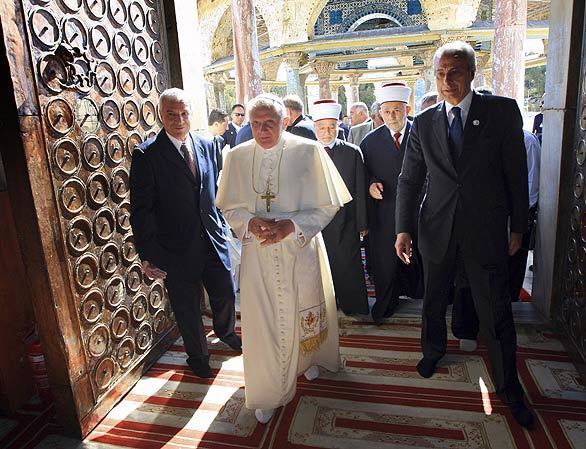
Controversy also erupted during Pope Benedict’s visit to Latin America in 2007 when he said in a speech in Brazil that the continent’s indigenous people were secretly yearning for the Christian religion brought by the colonialists.
Several indigenous groups protested, while one said that “representatives of the Catholic Church at that time, with few exceptions, were complicit, hypocritical, and profiteering from one of the most horrific massacres in human history.”
Upon his return to Rome, the Pope admitted that it is not possible to forget the suffering and injustice caused by colonialism to the indigenous peoples of South America, but he reiterated his opinion that Catholicism in South America has positively shaped the civilization of the continent in the last 500 years.
The year 2009 also witnessed tension in the Vatican’s relationship with “Israel” after Pope Benedict removed the ex-communication of four bishops, one of whom had denied the Jewish Holocaust, and this incident turned into a major problem that was reported by the press at the time.
In the same year, Pope Benedict was accused of belonging to the youth of the Nazi leader Adolf Hitler, which forced the official spokesman for the Vatican at the time, Federico Lombardi, to deny the accusations, stressing that the Pope participated when he was sixteen years old in a German air defense squadron and had nothing to do with Nazi beliefs.
However, the case did not end there, as accusations of his relationship with Nazism pursued him, including when newspapers quoted him as saying that he was forced to be a member of Hitler’s youth during World War II.
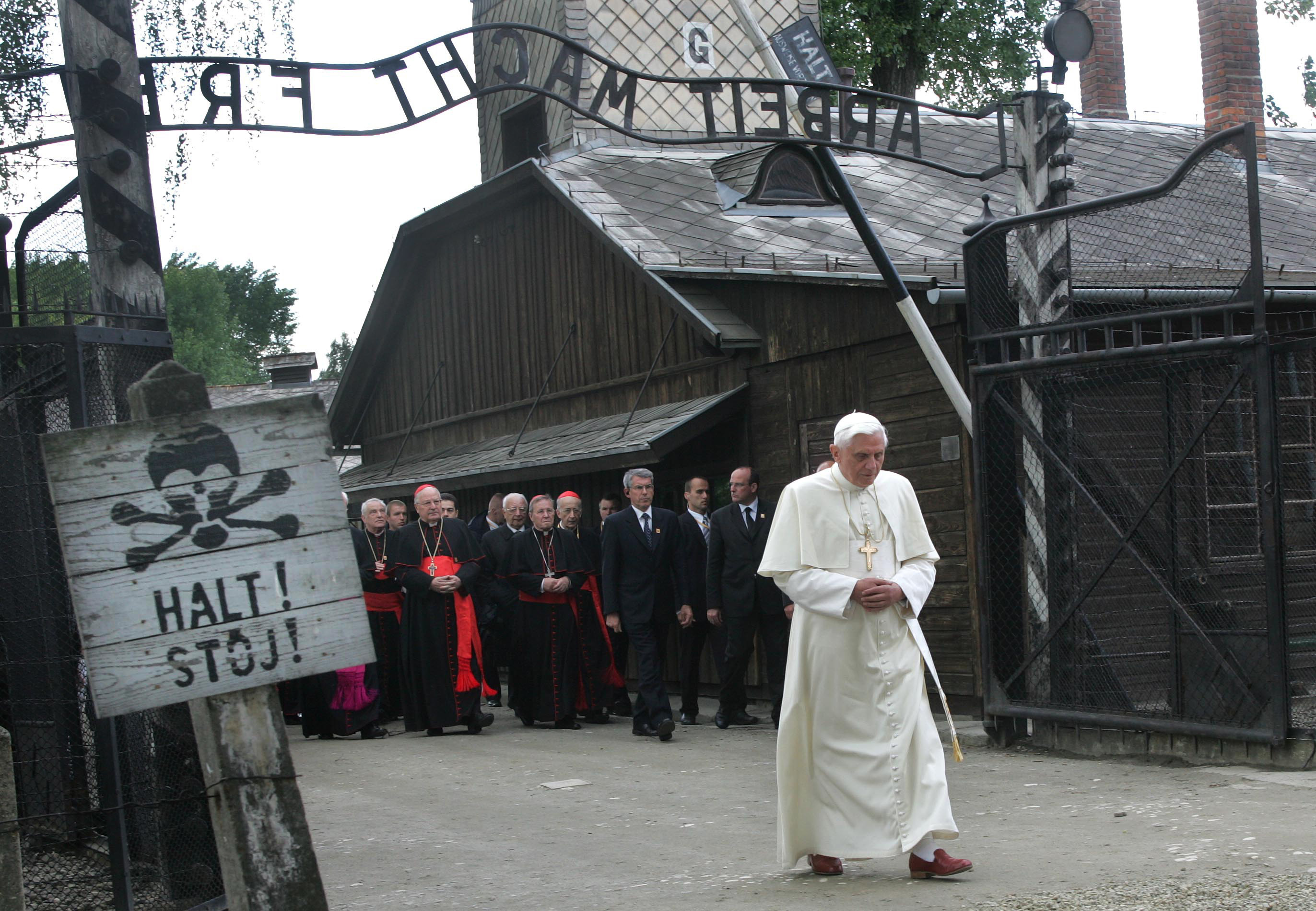
Horrific Scandals
Four years before Cardinal Ratzinger came to the papal chair, his predecessor, Pope John Paul II, chose him in 2001 to lead the Church’s efforts in confronting sexual abuse cases that still shake Catholic churches today.
The German Cardinal presented his recommendations to change the historic cover-up of abuses, then his first missions as Pope of the Vatican included holding personal meetings with victims of sexual assaults.
This coincided with the publication of additional reports of priests in the United States, Denmark, Germany, and other countries committing sexual assaults on children and young men during and before Pope John Paul II, which weighed heavily on Benedict XVI.
These reports were described as horrific scandals without beginning and end, which greatly damaged the reputation of the Catholic Church.
These scandals moved to harm Pope Benedict XVI himself when a German investigation revealed that Benedict had committed irregularities in his handling of child abuse cases while archbishop of Munich between 1977 and 1982, which prompted him to express to all victims of abuse his deep shame.
Benedict XVI had condoned the sexual abuse crisis in some churches, in addition to his involvement in helping in it, as reported by the Washington Post on July 25, 2022.
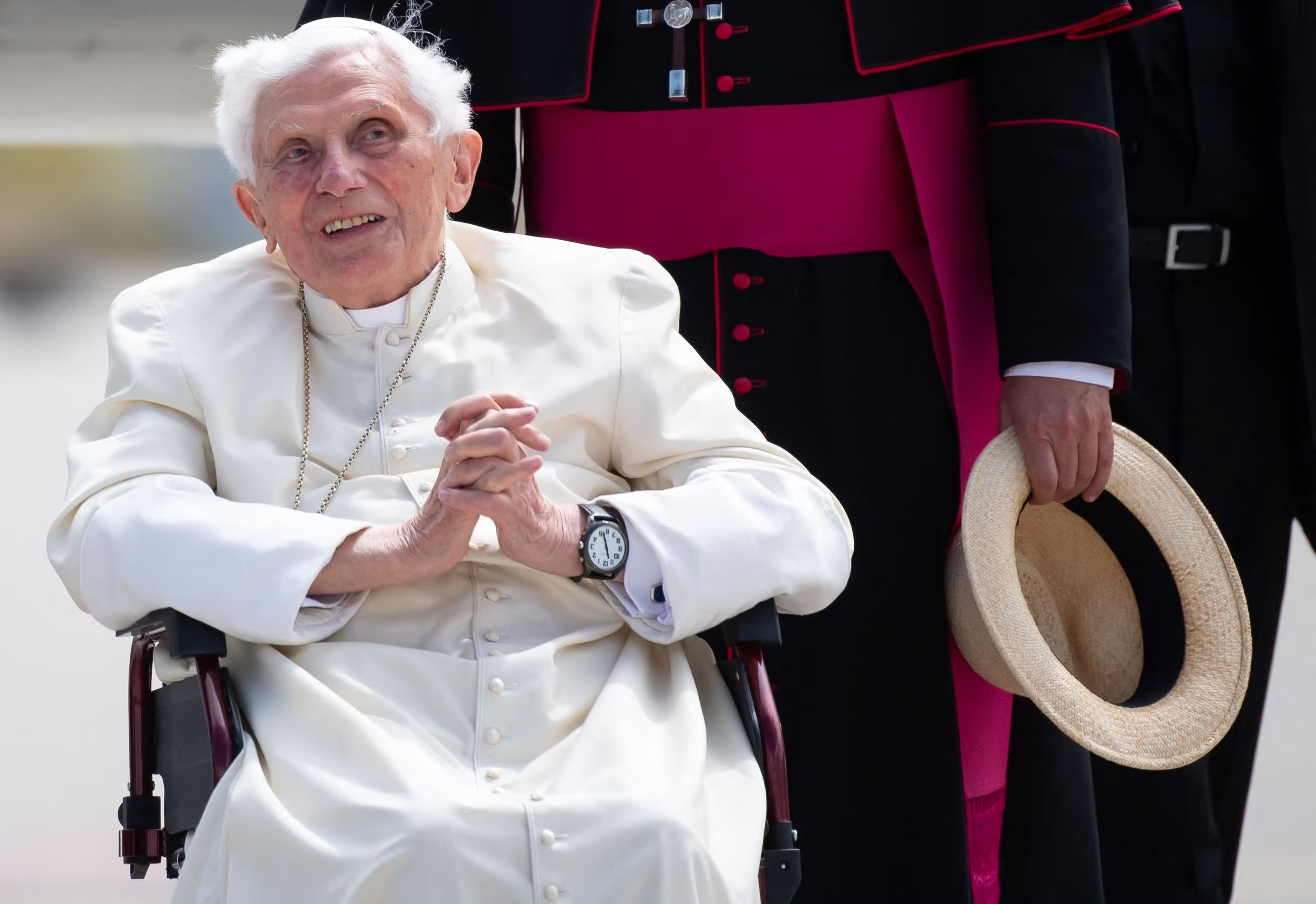
In addition to the above, the Vatileaks scandal also emerged in 2012, which was revealed by Italian newspapers and the French newspaper Le Figaro, based on leaks from within the Church about corruption and money laundering.
A special anti-espionage group established by Pope Benedict XVI questioned four cardinals about the leaks before the Vatican spokesman denied the involvement of senior bishops in corruption and the awarding of bids to Italian construction companies in particular.
This scandal was accompanied by the disclosure of the existence of the gay lobby that used blackmail to protect its members.
On October 6 of the same year, a Vatican court convicted Pope Benedict XVI’s ex-butler, Paolo Gabriele, of stealing sensitive documents and sentenced him to a year and a half in prison.
Gabriele later defended himself by saying that he acted out of his deep love for the Catholic Church, prompting Pope Benedict to pardon him and appoint him in charge of a hospital.
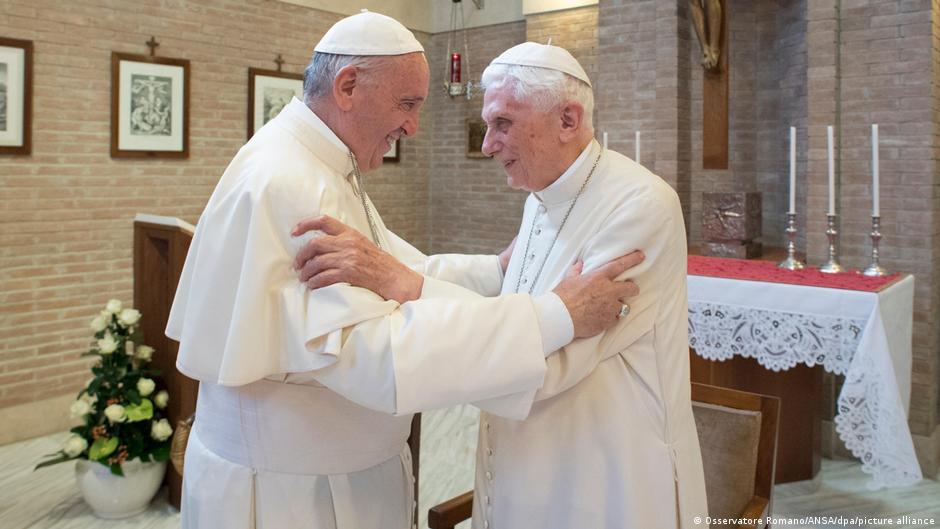
Although Pope Benedict XVI resigned in 2013, citing health reasons, the infamy continued to haunt him because of the accusations leveled against him.
In general, the Vatican documents and archives, due to strict secrecy, do not explain the true reasons for the resignation of Pope Benedict XVI, while journalists familiar with what is happening in the corridors of the Vatican linked it to internal conflicts and his poor skills.
Sources
- Benedict: The pope who resigned from the papacy
- Muslim leaders demand apology for Pope's medieval remarks
- Latin American groups, leaders decry pope’s remarks on conquest
- Pope outrages Jews over Holocaust denier
- German investigation accuses Benedict XVI of ‘wrongdoing’ in handling of abuse cases while archbishop of Munich
- Benedict XVI's ex-butler sentenced to 18 months in prison [French]










